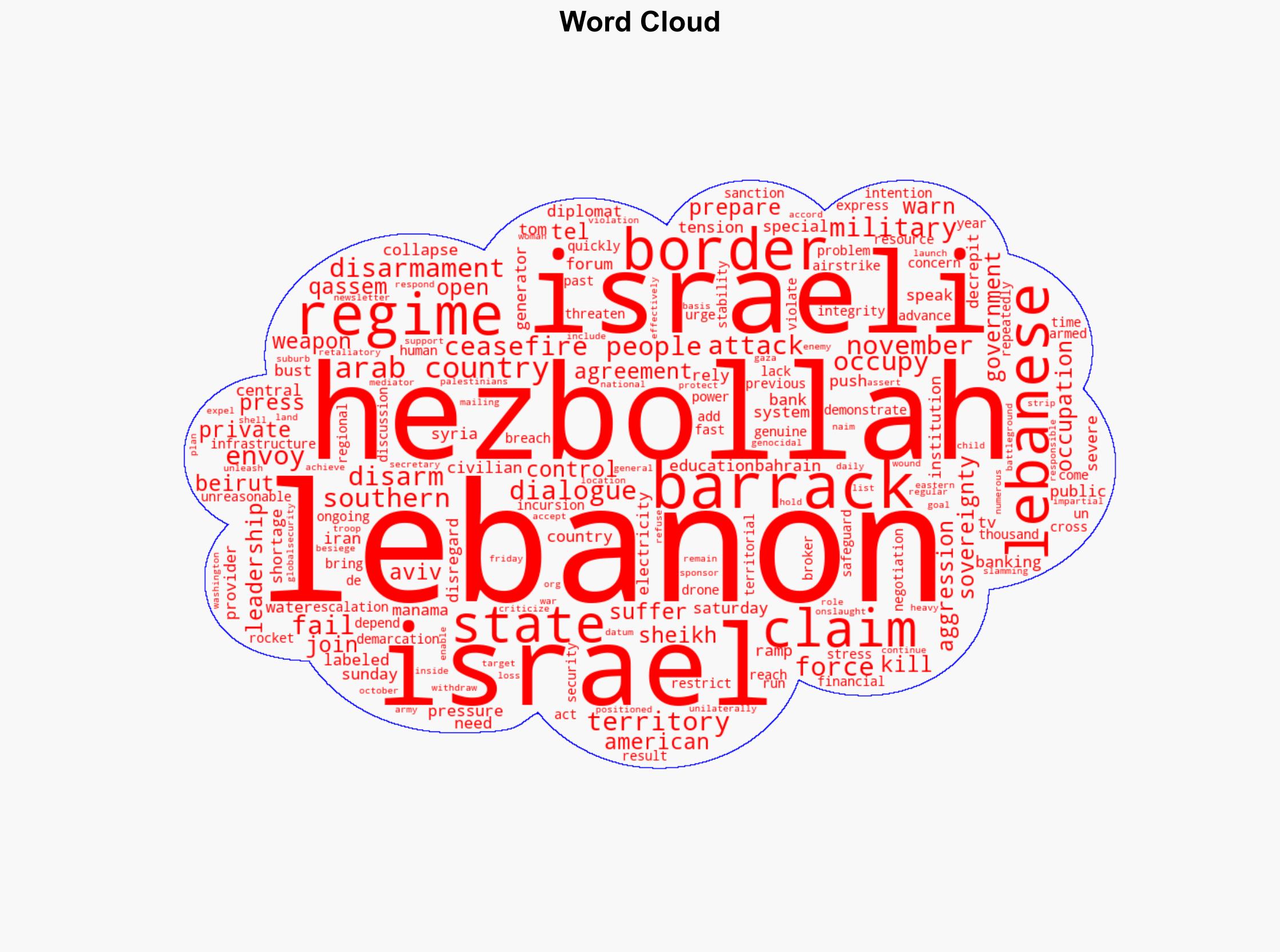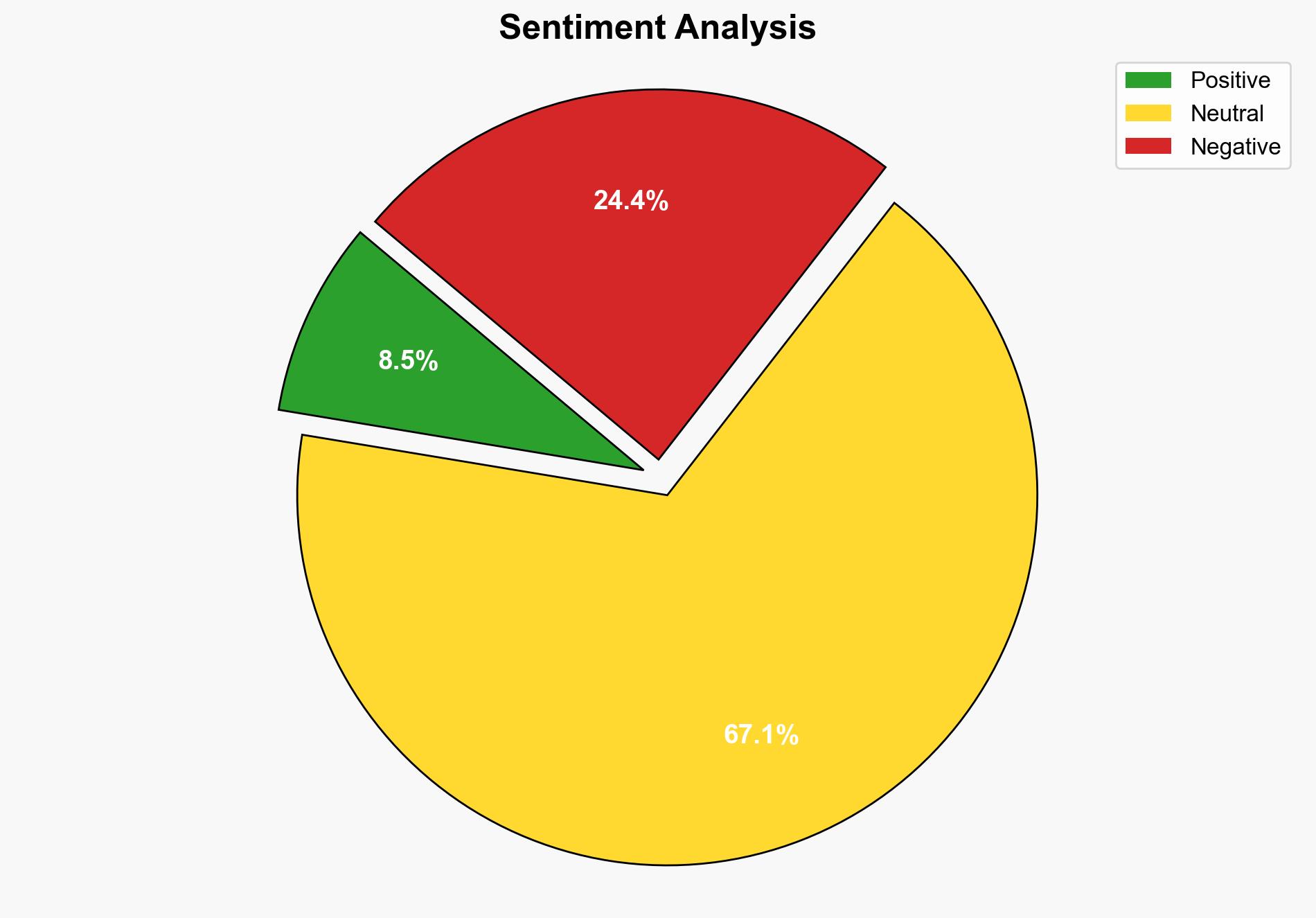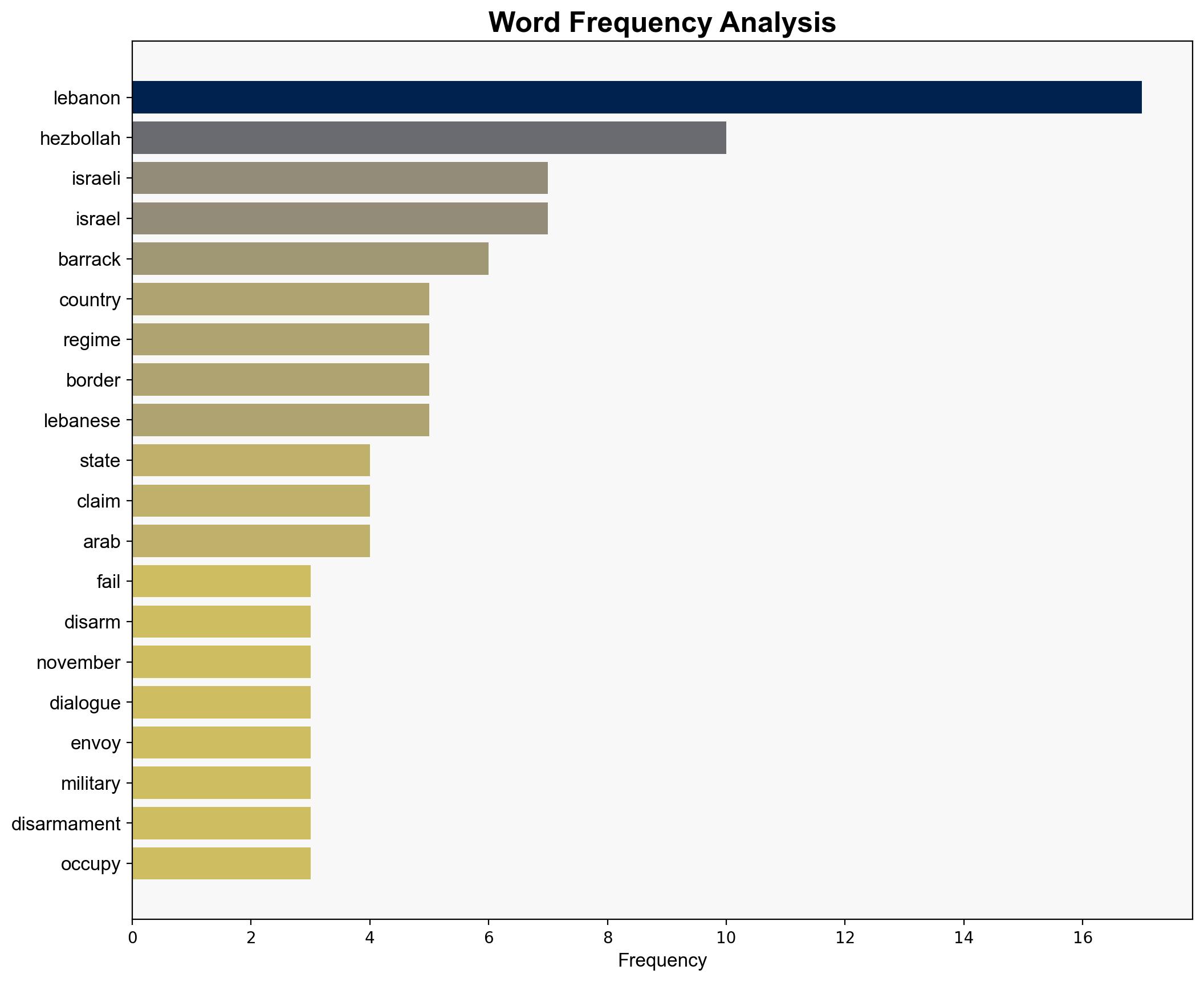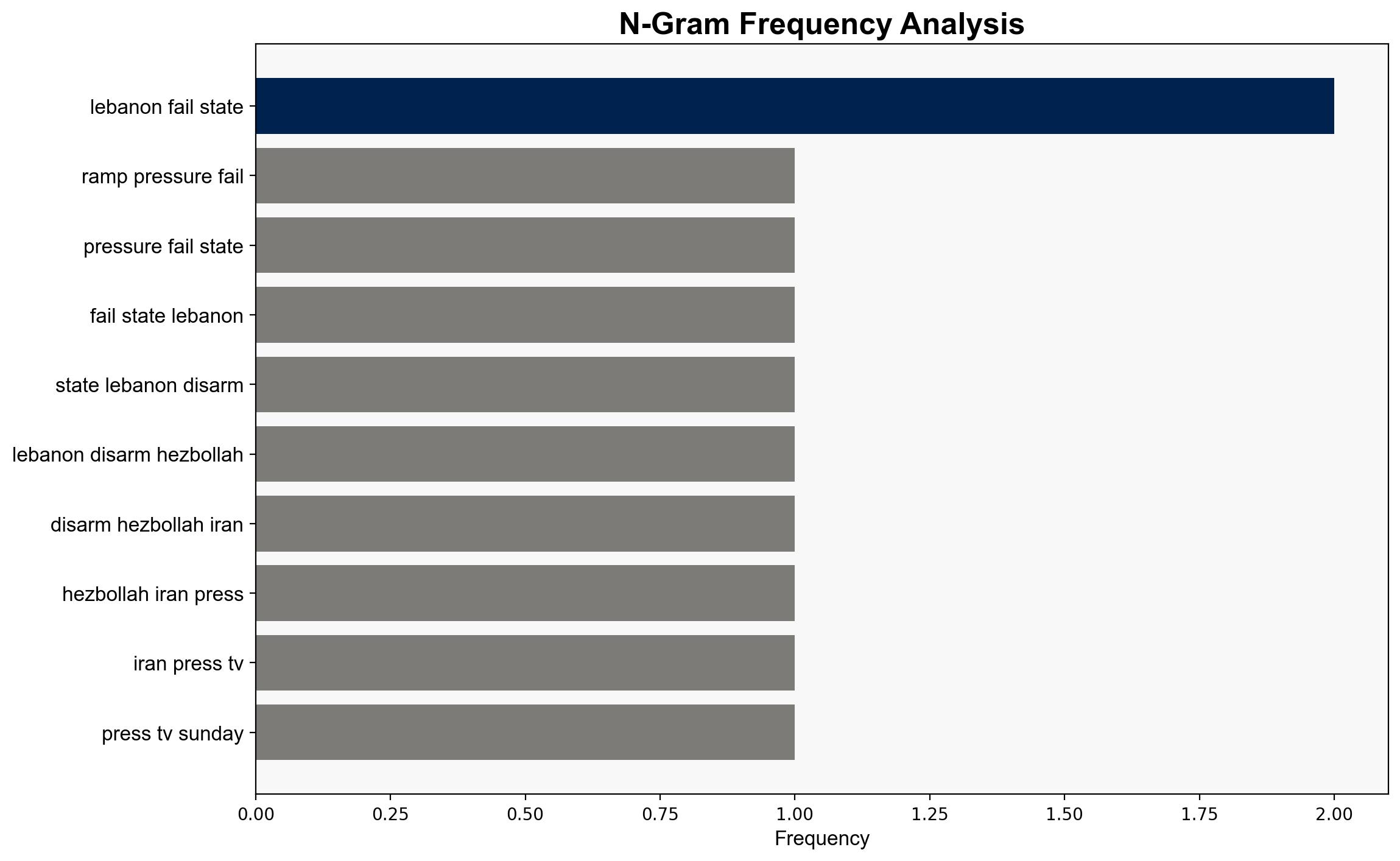US ramps up pressure on ‘failed state’ Lebanon to disarm Hezbollah – Globalsecurity.org
Published on: 2025-11-03
Intelligence Report: US ramps up pressure on ‘failed state’ Lebanon to disarm Hezbollah – Globalsecurity.org
1. BLUF (Bottom Line Up Front)
The most supported hypothesis is that the US is leveraging Lebanon’s economic instability to pressure the Lebanese government into disarming Hezbollah, which is perceived as a threat to regional stability. Confidence level: Moderate. Recommended action: The US should engage in multilateral diplomacy involving regional stakeholders to address broader security concerns while providing economic assistance to stabilize Lebanon.
2. Competing Hypotheses
1. **Hypothesis A**: The US is primarily concerned with regional stability and views Hezbollah’s disarmament as crucial to preventing further conflict between Lebanon and Israel. This is supported by the emphasis on border negotiations and the threat posed by Hezbollah’s arsenal.
2. **Hypothesis B**: The US is using Lebanon’s economic crisis as leverage to weaken Hezbollah’s influence, aligning with broader geopolitical strategies against Iranian proxies in the region. This is supported by the focus on Lebanon’s failed state status and the economic pressure points highlighted in the report.
Using ACH 2.0, Hypothesis B is better supported due to the consistent emphasis on Lebanon’s economic vulnerabilities and the strategic context of US-Iran tensions.
3. Key Assumptions and Red Flags
– **Assumptions**: It is assumed that disarming Hezbollah will lead to regional stability and that Lebanon’s government has the capacity to negotiate effectively under current conditions.
– **Red Flags**: The report lacks detailed evidence of Lebanon’s internal political dynamics and public sentiment towards Hezbollah. There is also an assumption that Israel’s actions are purely defensive, which may not account for broader regional provocations.
4. Implications and Strategic Risks
– **Implications**: Increased pressure on Lebanon could exacerbate its economic crisis, leading to further instability and potential humanitarian issues. Hezbollah’s response to disarmament pressure could escalate tensions with Israel.
– **Strategic Risks**: Failure to address Lebanon’s economic needs could lead to increased influence from other regional actors, such as Iran or Russia, filling the void left by Western disengagement.
5. Recommendations and Outlook
- Engage in multilateral diplomacy with key regional players, including Iran, to address broader security concerns.
- Provide targeted economic assistance to Lebanon to stabilize its economy and reduce Hezbollah’s influence.
- Scenario Projections:
- Best Case: Successful disarmament of Hezbollah leads to improved Lebanon-Israel relations and regional stability.
- Worst Case: Economic collapse and increased conflict between Hezbollah and Israel, drawing in regional powers.
- Most Likely: Continued stalemate with periodic escalations and ongoing economic challenges for Lebanon.
6. Key Individuals and Entities
– Tom Barrack
– Sheikh Naim Qassem
– Hezbollah
– Israeli regime
7. Thematic Tags
national security threats, geopolitical strategy, economic leverage, regional stability





